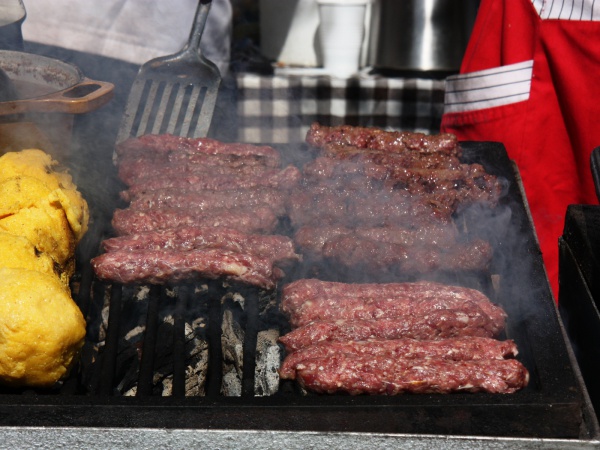Facts About Mititei
Mititei, also known as Mici, is a cherished Romanian dish consisting of grilled rolls made from a blend of ground meats—typically beef, lamb, and pork. These flavorful rolls are seasoned with a mix of spices including garlic, black pepper, thyme, coriander, anise, savory, and occasionally paprika. To achieve optimal texture and taste, the mixture also incorporates sodium bicarbonate and either broth or water.
If you have ever tasted ćevapi from the Balkans or Middle Eastern kebabs, you will find Mititei quite similar. They are traditionally served with a side of French fries, mustard, and pickled vegetables, creating a hearty and satisfying meal.
The origins of Mititei date back to late 19th-century Bucharest, where a cook named Iordache Ionescu is credited with inventing the dish. It quickly gained popularity and became a staple of Romanian cuisine. Over the years, the recipe has evolved, with the addition of sodium bicarbonate, for instance, to enhance flavor and texture.
Today, Mititei is extremely popular in Romania, with an estimated 440 million consumed annually. They are enjoyed at home, in restaurants, and especially at outdoor grilling events. The dish is particularly popular on International Workers' Day, May 1st; in 2019 alone, millions of Mititei were consumed on this day. While it is often celebrated as Romania's "national dish" it does not officially hold that title.
Mititei's appeal extends beyond Romania; significant quantities are exported to countries with large Romanian communities, such as Italy, Spain, and the United Kingdom. This widespread appreciation underscores Mititei's cultural significance far beyond Romania's borders.

 Ukraine
Ukraine